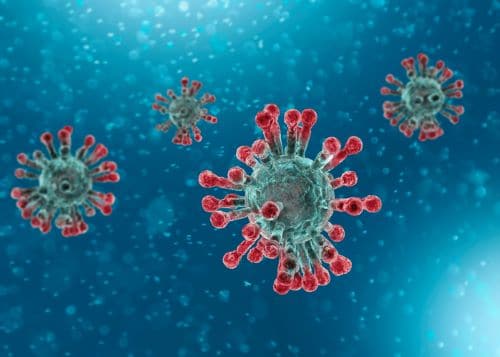For the first few months of the pandemic, the science was unclear about whether face masks protected wearers from coronavirus.
The World Health Organization and the U.S. Centers for Disease Control and Prevention initially said that most people didn’t need masks. The exceptions were people in high-risk groups (seniors and those with heart disease, high blood pressure, or diabetes), caregivers to infected people, and people who were confirmed to have COVID-19 or showed symptoms.
But both organizations have changed their minds. The CDC now recommends that “everyone wear face coverings when leaving their homes.” The WHO gives essentially the same advice.
New studies clearly show that face masks protect both wearers and the people around them.
Many states have rules or recommendations for wearing face masks in public. Even if it’s not required, it’s a good idea to use a mask whenever you are near people who are not part of your household.
The question now becomes: Which type of face mask is best?
The two most important factors to consider when deciding on a face mask are filtration and fit.
The higher the level of filtration, the higher the percentage of virus-carrying respiratory droplets that the mask keeps out. And a mask that fits snugly keeps droplets from getting in through the edges.[1]
With that in mind, let’s look at the good and bad points of the most common types of masks.
Pros and Cons of 5 Types of Face Masks
- Cloth. On the upside, cloth masks are easy to get. You can purchase them online or from drugstores and department stores. And you can reuse them indefinitely as long as you wash them after every use.
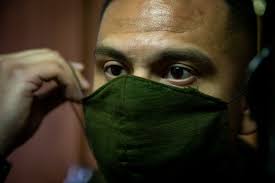
On the downside, their quality varies a lot. The worst ones have filtration levels as low as 1%. The best ones can be as high as 79%. That’s better than surgical masks.
It should have at least two layers of fabric—preferably tightly woven cotton, silk, linen, or polyester.
A study from Wake Forest Baptist Health Medical Center found that an effective cloth mask blocks out light when you hold it up to the sun. At the same time, it shouldn’t be so thick that you can’t breathe through it.
- Paper. A study published in the journal Environmental Science compared cloth to paper masks.
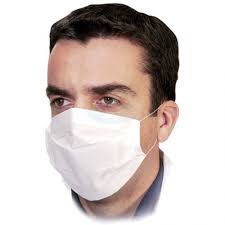
Microscopic examination showed paper masks had smaller holes. And another study found paper was more effective at protecting against the flu. But paper masks don’t last as long, and they’re in higher demand.[2] [3]
- Surgical masks. These “accordion masks” have pleats that allow the wearer to expand them to the desired length. They usually cover more of your face than cloth masks.
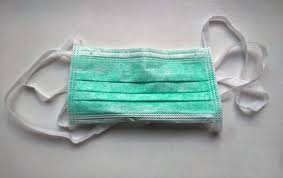
And they have a metal band across the top that allows you to mold the mask to the contours of your nose and face. On the downside, they aren’t made for repeated use. And they tend to be loose on the sides.
- Homemade masks. These work well as long as they are constructed correctly. Experts recommend using tightly woven cotton fabric.
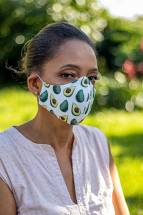
If you make your own mask, it’s a good idea to insert a filter in the fabric. The CDC recommends coffee filters.
The CDC’s step-by-step guide to mask construction is here.
- N95 respirators. These are the most effective face masks. At 95% they have the best filtration level, and they fit snugly. But they can only be used once, are uncomfortable, and can be difficult to breathe through. [4]
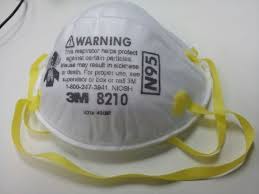
N95 masks are needed by health care professionals and are in short supply, so you should cross them off your list.
There’s no longer any doubt: face masks are a valuable tool in lowering your risk of getting COVID-19. Just make sure to weigh your options and choose one that works for you.
Editor’s Note: Discover the single best supplement for stronger immunity… The fruit extract that helps 93% of people with respiratory viruses get better in just two days… The germ hotspot that most of us forget to sanitize. Find all this and more in Independent Healing’s Coronavirus Pandemic Guide. Go HERE.
Related Articles
Coronavirus Doesn’t Spread the Way You Think
Coronavirus Stress: 5 Ways to Keep Calm and Carry On
9 Coronavirus Symptoms You Should Watch For
Like this Article? Forward this article here or Share on Facebook.
[1]https://www.headcovers.com/blog/surgical-masks-the-best-types-of-face-masks-for-virus-protection/
[2]https://peerj.com/articles/7142/
[3]https://www.ncbi.nlm.nih.gov/pmc/articles/PMC4420971/
[4]https://www.nytimes.com/2020/06/01/health/masks-surgical-N95-coronavirus.html

